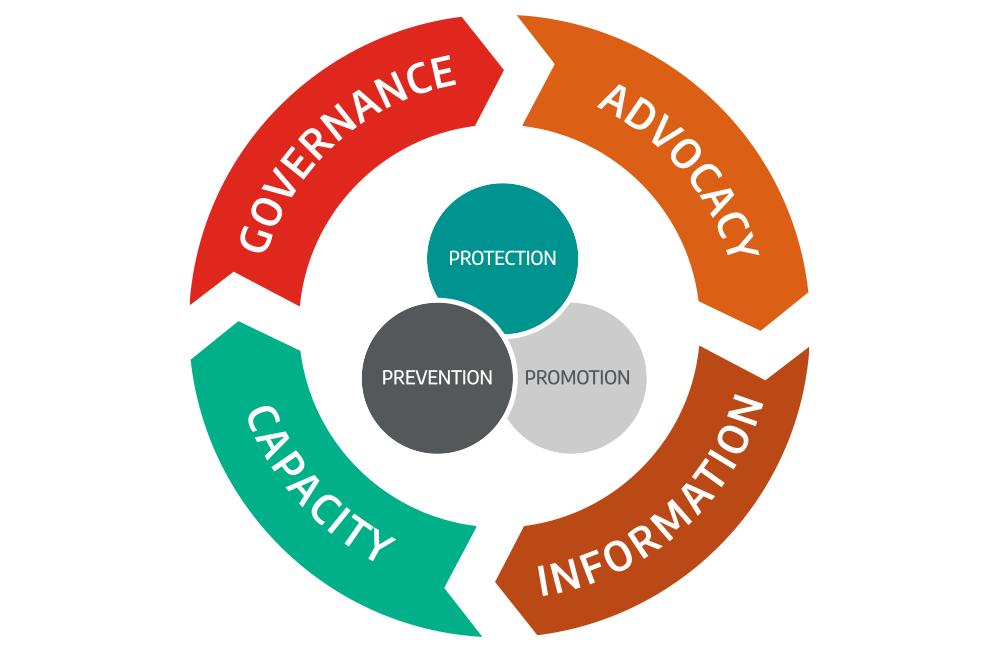The Global Charter
for the Public’s Health
The Global Charter for the Public’s Health, developed with the WHO, provides new insights into the direction of public health and provides guidance for both ‘services’ (Protection, Prevention and Promotion) and ‘functions’(Governance, Advocacy, Capacity and Information).

The Global Charter for the Public’s Health, developed with the WHO, serves as a framework with which public health professionals and organisations can build the capacity to develop policy, prompt systemic change, and advocate for improved health. Critically, the tools provided by the Charter emphasise the individual priorities and circumstances of each country. Within its framework, the Charter establishes the functions of information, capacity, effective advocacy, and good governance in promoting public health, increasing health security, and fulfilling the human right to health. Since 2016, several organisations have implemented the Charter’s framework in various applications. For instance, the Charter serves as the basis for toolkits developed by the Commonwealth of Nations for healthy policy implementation. The Charter’s framework has also been consulted as part of the World Health Organization (WHO) Regional Office for Europe’s strategy on public health functions. The Charter has even been integrated into government-led health initiatives in countries such as Australia, Panama, and Mongolia, and some public health school curricula, including the University of Maastricht and Geneva, have incorporated the Charter into their teachings. WFPHA Oral Health working groups have adopted the Charter as a means to facilitate oral and public health integration and the Professionals’ Education and Training Working Group has used the Charter to compare competency sets, check public health curricula content, inform competency framework and curricula (re)design, and to plan and monitor workforce needs.
